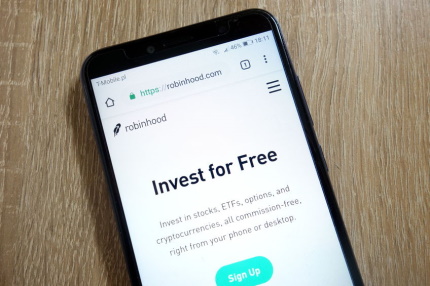Last week one of my Dividend Hunter recommended stocks received a buyout offer. It was interesting to watch what I call the Robinhood Effect, grab the share price, and push it much higher than the buyout offer’s intrinsic value. Investors with long-term outlooks should understand the potential short-term disruptions caused by the Robinhood Effect.
If you aren’t familiar, Robinhood is a zero-commission brokerage firm that only operates through phone-based apps that are more like a video game than a way to evaluate investments and make informed choices seriously.
In contrast to the reasoned investment or trading approaches of more seasoned investors, Robinhood traders typically get stock symbols from chatrooms. They have no idea about the companies behind the symbols. With almost 15 million users, including three million new signups in 2020, Robinhood traders can really move stock prices when they jump into a hot ticker symbol.
[TRENDING NOW]: This 36-Month Accelerated Income Plan Pays Your Bills For Life… [ad]
Here is an example from my boring, income-focused approach to the stock market.
On Monday, January 4, Brookfield Asset Management (BAM) announced an offer for all of the units of Brookfield Property Partners (BPY) it did not already own. BAM owns a controlling interest in BPY.
BPY closed on December 31 at $14.47 per share. The offer from Brookfield Asset Management is $16.50 per share. That represents a 14% premium to the previous close. When the market opened, the BPY share price quickly settled in at $16.80. That is a rational number based on the offer plus the next $0.30 dividend payment. With the offer in hand, I recommended that my subscribers sell, locking in the 17% gain over the end-of-year closing price.
Then something funny happened. About mid-day, the BPY share price started to increase further. The share price peaked at about $17.20, 4% above the BAM offer. I attribute the share price gains above the logical level to Robinhood type traders, who only saw a quickly rising stock price and decided to jump on the shares for the ride. They had no idea that the shares they bought had a capped value of $16.50 per share.
While in this case, the stock price move was not large, the price action shows how traders can and will drive a share price without regard to the underlying company or any fundamental values. If you are an investor striving to build wealth over the long term, I think it is important to be aware that in this Robinhood affected stock market, share prices can swing wildly without having fundamental reasons for the share price changes.
I strive to invest and make recommendations based on the business’s value and the profits and dividends it generates. It’s an old-fashioned concept that has the underlying benefit of working through all stock market conditions.






